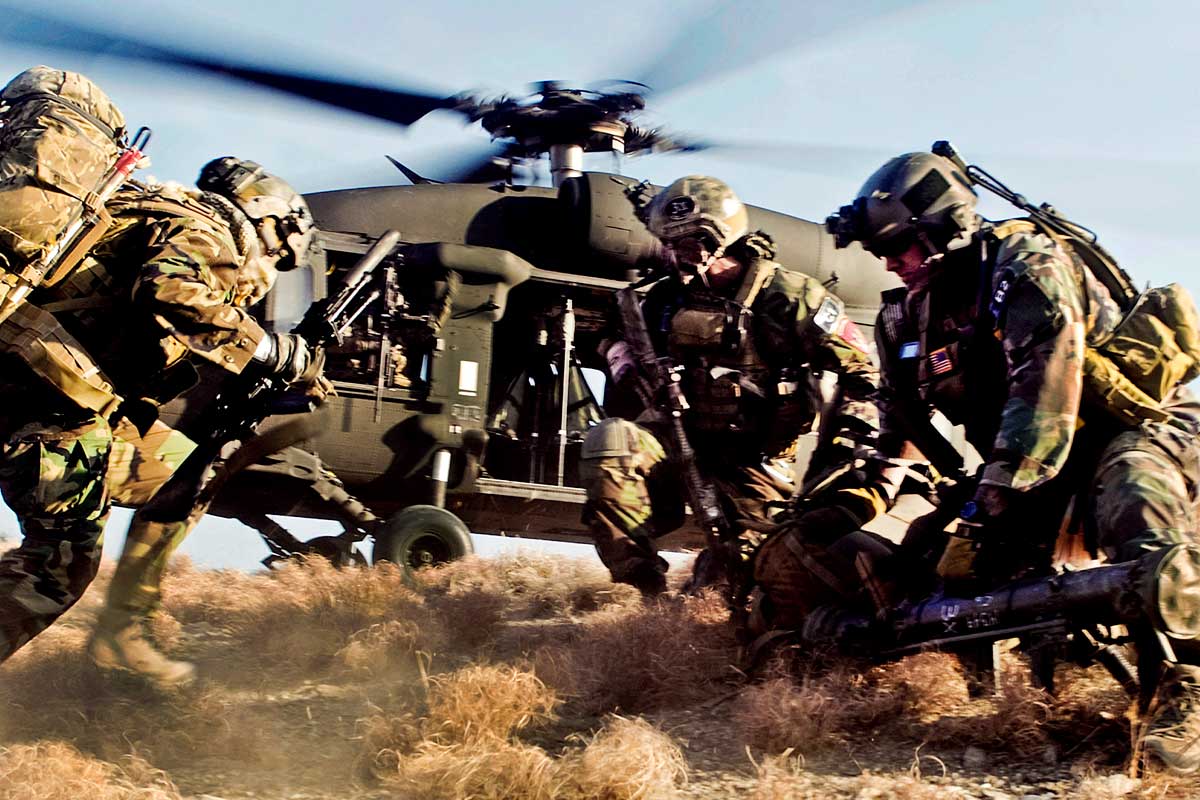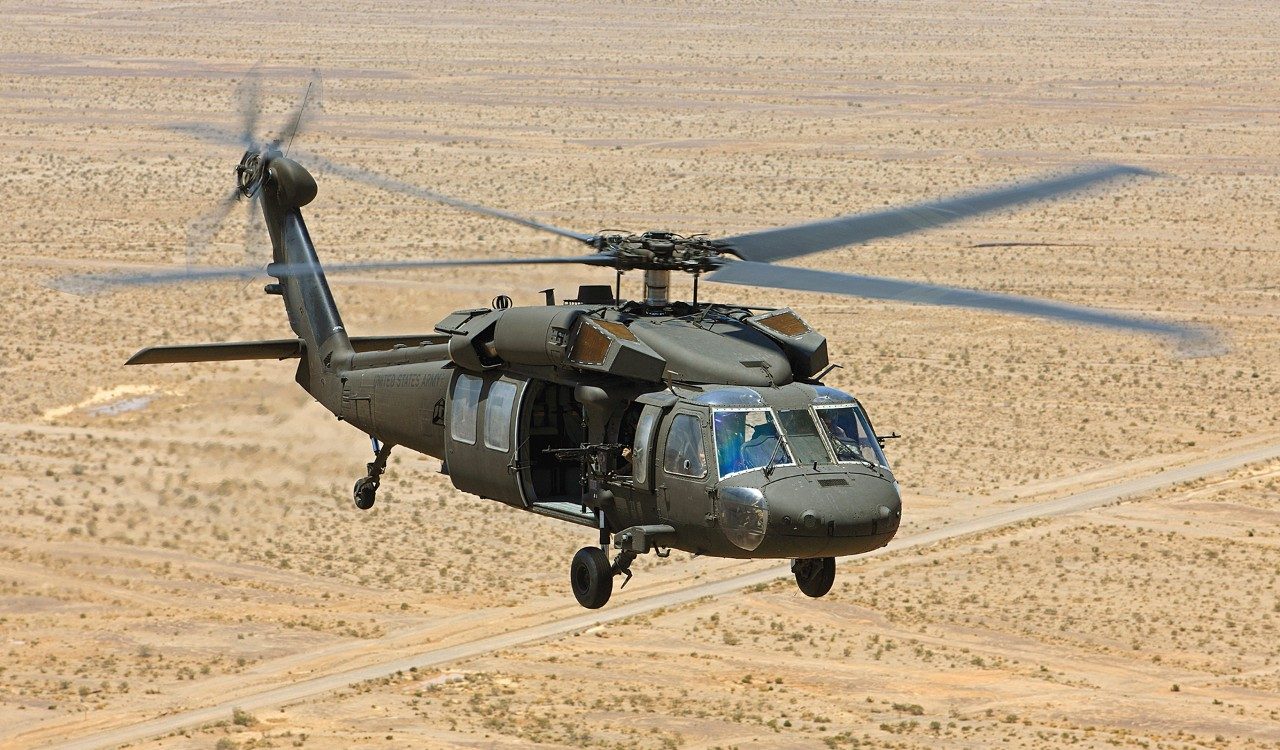The Role of UH 60 in Modern Military Procedures
The Role of UH 60 in Modern Military Procedures
Blog Article
The Duty of Aircraft fit Global Transport and Profession Characteristics
The development of airplane has indelibly changed global transportation and trade characteristics, assisting in extraordinary levels of connection and efficiency. Via the establishment of robust air freight networks, companies can currently browse global markets with remarkable speed and dexterity, consequently redefining supply chain strategies. Nevertheless, this change is not without its difficulties, as the air travel market faces sustainability worries and regulative stress. As we discover the complex effects of airplane on worldwide trade, it is necessary to consider exactly how these aspects will shape the future landscape of aeronautics and its role in the economy.

Development of Air Transport
The evolution of air transportation has actually been marked by significant technical improvements and developments that have actually changed the way people and products move throughout the world. From the Wright brothers' first powered trip in 1903 to the growth of supersonic jets, each milestone has actually highlighted the relentless search of performance and rate in flight. Early airplane were mostly primary, limited by engine power and architectural stability. The intro of sophisticated products and aerodynamics in the mid-20th century led to substantial improvements in aircraft safety and security, performance, and reliability.
The latter component of the 20th century saw the development of industrial aviation as a practical setting of transportation, characterized by the introduction of jet engines, which reinvented flight by significantly minimizing trip times. Additionally, innovations in navigating and communication modern technologies have enhanced operational performance and safety and security, permitting even more complicated trip paths and routines. The surge of air freight in parallel with traveler solutions has further underscored the versatility of aviation. As we want to the future, arising technologies such as electrical and autonomous airplane promise to redefine the air transport landscape, ensuring ongoing development and adaptation to worldwide demands.
Effect On Global Trade
Air transportation has exceptionally reshaped global trade by assisting in the swift motion of items throughout vast ranges. This expedited logistics capability permits services to respond quickly to market demands, thereby boosting supply chain efficiency. The capability to transport disposable goods, high-value products, and time-sensitive products has actually opened new markets and opportunities for different industries, dramatically influencing trade patterns.
Furthermore, the growth of air freight networks has actually fostered globalization, making it possible for companies to source materials and items from different parts of the globe seamlessly. This interconnectedness minimizes preparations and costs, enabling services to continue to be affordable in a progressively worldwide marketplace. Additionally, air transport plays a critical role in e-commerce, where consumer assumptions for quick delivery have actually driven a surge in demand for air freight solutions.
The influence of airplane on global profession includes the production of strategic trade courses, linking areas and helping with international partnerships. Nations that buy air transportation framework usually experience enhanced financial growth and raised international straight investment. Overall, the evolution of air transport has not just transformed the logistics landscape however has likewise come to be an essential component in the dynamics of worldwide trade.

Financial Advantages of Aeronautics
A robust aviation market generates substantial economic advantages, contributing to job production, tourism, and general financial growth - uh 60. The aviation industry supports millions of jobs worldwide, ranging from direct work in airport terminals and airline companies to indirect roles in industries such as friendliness, transportation, and logistics. According to sector records, for each job in the aviation market, roughly 3.5 added work are produced in the wider economic situation
Tourist is a critical aspect of the economic benefits stemmed from aeronautics. Flight promotes global tourist, permitting vacationers to check out varied destinations, which subsequently boosts regional economic climates. Nations that buy their aeronautics framework usually experience enhanced visitor arrivals, causing greater investing on services such as tourist attractions, hotels, and restaurants.

Furthermore, air travel enhances worldwide connection, enabling companies to access brand-new markets and resources successfully. This connectivity promotes worldwide profession, enabling for the rapid motion of goods, which is crucial in today's globalized economy. Consequently, fields such as e-commerce and production advantage tremendously from trustworthy air transport, further driving economic growth. In general, the air travel market stays a foundation of financial vitality, highlighting its integral duty in shaping contemporary economic situations.
Challenges Dealing With the Air Travel Sector
Navigating a complicated landscape of regulative, ecological, and economic obstacles, the aviation market faces considerable obstacles that threaten its sustainability and development. Laws surrounding safety and security index and safety are continuously progressing, necessitating continuous conformity and adaptation from producers and airlines (uh 60). This can lead to raised operational expenses and resource allowance that takes away from advancement and growth initiatives
Furthermore, ecological issues have come to be extremely important, with growing examination over carbon exhausts and noise contamination. The industry is under pressure to adopt greener methods and innovations, which typically need considerable investment in r & d. Stabilizing these ecological duties with the need for flight offers a significant challenge.
Financial variations, such as climbing fuel prices and geopolitical unpredictabilities, additionally complicate the landscape. Airline companies regularly come to grips with unpredictable operating expense and fluctuating guest need, which can influence earnings and long-term planning. Labor scarcities and skill spaces in important locations include an additional layer of complexity, preventing functional efficiency.
Eventually, attending to these complex challenges is necessary for the air travel industry to preserve its pivotal role in international transport you can check here and profession, while making sure strength and versatility in a significantly affordable market.
Future Fads in Air Traveling
Moving and arising modern technologies customer choices are poised to improve the future of flight considerably. The combination of synthetic knowledge and equipment knowing is expected to boost functional efficiency, enhance airport terminal processes, and boost client service. Predictive analytics will help with much more precise need forecasting, permitting airlines to optimize flight schedules and prices models.
Sustainability is becoming More about the author a key vehicle driver in flight, with the aeronautics industry increasingly focused on decreasing carbon emissions. Technologies in aircraft style, such as hybrid and electrical propulsion systems, are being explored to fulfill environmental targets. The adoption of sustainable aviation gas (SAFs) is expected to play an important duty in accomplishing net-zero exhausts by 2050.
Customer choices are shifting towards individualized travel experiences. Airlines are buying innovative data analytics to tailor solutions and boost customer engagement, guaranteeing a much more tailored trip from booking to arrival. Additionally, the rise of remote job might lead to increased need for recreation travel, as people seek to combine job and getaway.
Conclusion
The advancement of air transportation has actually changed international trade, producing significant economic benefits while additionally presenting difficulties that need critical monitoring. The continuous adaptation of the air travel market will be important for maintaining its contributions to the international economy.
The last component of the 20th century experienced the emergence of business air travel as a practical mode of transportation, characterized by the introduction of jet engines, which revolutionized air traveling by significantly minimizing trip times. The rise of air freight in parallel with traveler services has actually better underscored the versatility of aviation. In addition, air transport plays a crucial role in e-commerce, where consumer assumptions for rapid delivery have actually driven a rise in demand for air products services.
On the whole, the development of air transportation has not just changed the logistics landscape but has additionally come to be an important component in the dynamics of international profession.
Sustainability is becoming an essential chauffeur in air travel, with the aeronautics market increasingly concentrated on decreasing carbon emissions.
Report this page